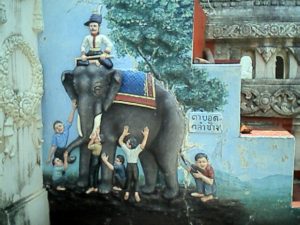
We don’t always have to move in a straight line from point A to point B in our thinking. Two of our grandchildren are English and are taught to think laterally in school. Here is a story that illustrates that point.
Once there was a poor and destitute man. He was overwhelmed with debt, but he had a beautiful daughter. A powerful, wealthy man approached him with an offer. “I need a wife, and you have a beautiful daughter. I will put two rocks in this bag. One is white, and one is black. We’ll let your daughter draw one out of the bag. If it is black, she must marry me, but I will pay off all your debts. If she draws out the white stone, she won’t have to marry me, but I will still pay your debts.”
The poor man didn’t have much choice. However, the rich man cheated. He put two black stones in the bag! The man was doomed to lose his beautiful daughter. However, when it came time to draw out a rock, the wise young woman who knew what the man had done drew out a stone but dropped it into the black gravel.
“Oh! How clumsy of me,” she said. “Fortunately, we still have the other stone in the bag. The first stone must have been the opposite color of that one,” and she drew out the remaining black stone.
Many so-called Biblical Contradictions can easily be solved. They are only contradictions if we jump to conclusions. For example, “How many blind men did Jesus heal on his way to Jerusalem?”
Matthew says, “And as they went out of Jericho, a great crowd followed him. And behold, there were two blind men sitting by the roadside, and when they heard that Jesus was passing by, they cried out, ‘Lord, have mercy on us, Son of David!’” (Matthew 20:29 – 30)
On the other hand, Mark says, “And they came to Jericho. And as he was leaving Jericho with his disciples and a great crowd, Bartimaeus, a blind beggar, the son of Timaeus, was sitting by the roadside” (Mark 10:46). Luke wrote: “As he drew near to Jericho, a blind man was sitting by the roadside begging. And hearing a crowd going by, he inquired what this meant. They told him, ‘Jesus of Nazareth is passing by.’ And he cried out, ‘Jesus, Son of David, have mercy on me!’ (Luke 18:35 – 38).
Read the text carefully before you conclude there is a contradiction. Luke says, “As he drew near to Jericho,” while Mark says, “as he was leaving Jericho.” Matthew simply summarizes the healings in Jericho and gives the total of “two blind men.”
It seems some people get all their exercise by jumping to conclusions.

